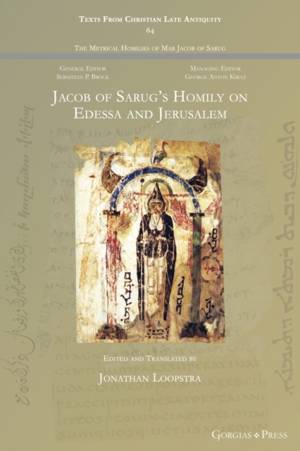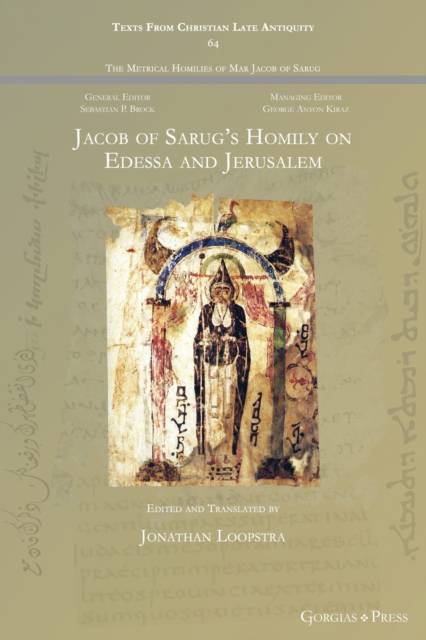
- Retrait gratuit dans votre magasin Club
- 7.000.000 titres dans notre catalogue
- Payer en toute sécurité
- Toujours un magasin près de chez vous
- Retrait gratuit dans votre magasin Club
- 7.000.0000 titres dans notre catalogue
- Payer en toute sécurité
- Toujours un magasin près de chez vous
Jacob of Sarug's Homily on Edessa and Jerusalem
Description
Mar Jacob of Sarug's (d. 521) homily "On Edessa and Jerusalem" takes as its principal subject the legendary exchange of letters between King Abgar in Edessa and Jesus in Jerusalem. In this poem-homily Jacob uses his profound skills as a poet and wordsmith to make the case that "the Peoples," represented by Edessa, have now supplanted "the People," the Jews of Jerusalem in the history of salvation. He promotes what he sees as the faithful heritage of Edessa, the first-ripe fruit of Gentile faith, against the faithlessness of Jerusalem. King Abgar's early faith in Jesus, coming before the Crucifixion and Ascension, has bestowed upon Edessa, the "Daughter of the Aramaeans," a unique heritage. As a poet-theologian, Jacob creatively couches his apology as an imagined conflict between two young women, Edessa and Jerusalem, over the Bridegroom Jesus, promised to one but loved by the other. A final stirring paean conveys a late fifth-century vision of the spread of the Good News to the Gentile nations of the world. The volume constitutes a fascicle of The Metrical Homilies of Mar Jacob of Sarug, which, when complete, will contain the original Syriac text of Jacob's surviving sermons, fully vocalized, alongside an annotated English translation.
Spécifications
Parties prenantes
- Editeur:
Contenu
- Nombre de pages :
- 118
- Langue:
- Anglais, Syriaque classique
- Collection :
Caractéristiques
- EAN:
- 9781463243357
- Date de parution :
- 23-07-21
- Format:
- Livre broché
- Format numérique:
- Trade paperback (VS)
- Dimensions :
- 152 mm x 229 mm
- Poids :
- 167 g

Les avis
Nous publions uniquement les avis qui respectent les conditions requises. Consultez nos conditions pour les avis.





